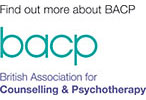
So I did a BLOG back in July on the Tunisian beach massacre (http://bit.ly/1HZivxL) and here I am again sadly writing about the Paris attacks. It feels like déjà-vu.
It has taken me more than a week to put pen to paper and like many others in the UK, I have been shocked, saddened and moved by what I have seen on TV and the personal stories that have since emerged.
With any emotional shock, it takes time to process what has happened and return to our normal state where we are not overwhelmed by our feelings and can think and feel again in equal measure. This links to the ‘grief cycle’ and initial stages of shock, denial and disbelief followed by an eventual acceptance of reality, which enables the individual to cope and come to terms with a loss.
Paris is very close to my heart, having been submerged in the culture as a University student and living there after graduating in the mid-nineties. I taught English at a school in Saint Denis (a 'banlieue' where the terrorists were lying low) as well as waitressing in an American theme- bar/restaurant and doing promotional work for a well known drinks company. I keep contact with friends to this day all of whom are safe.
People that Friday evening were out relaxing, socialising, eating and drinking, listening to music and having a good time. They thought they were safe but the reality was very different and 130 people have so far have lost their lives.
Parisians are left feeling terrified and reeling from the second terrorist attack in a year; preceded by the Charlie Hebdo shooting in January leaving 12 dead. They are fearful and live with the feeling that no-where is safe. When will this ever end they are asking themselves and when will be the next attack?
Living with uncertainty and the unknown is not easy. The city of Paris is on high-alert as are the people; and 300 miles away in the UK, we are also feeling more anxious and vulnerable and adapting our behavior as a result.
Commuters into the UK’s capital are feeling more nervous of taking the train with some people changing their travel plans immediately following the attacks. There is a general ‘unsafe’ feeling and looking over our shoulders and questioning those around us and their motives. With the number of terror attacks around the world on the increase, it’s beginning to feel like the only place we can be safe is if we stay at home.
A traumatic event may stir things up from the past causing disruption to an individual’s personality. Post traumatic stress disorder or PTSD can cause unwanted memories, insomnia, nightmares or flashbacks. All of these symptoms are normal reactions to abnormal events.
Symptoms might not appear immediately but can appear 6 months or so after the traumatic event has passed and is known as delayed onset PTSD.
Counselling or talking therapies can help people to cope with traumatic experiences as well as process what they have witnessed until it becomes part of their own experience and makes narrative sense. Healthy people make narrative sense.
You don’t need to be directly affected by the Paris attacks to be impacted by it. If you have noticed a change in a friend or family member or have suffered a trauma yourself and find yourself getting worse instead of better then you may need the help of a professional.
Counsellors help clients voice their thoughts, emotions and experiences which in turn eases their distress. Don’t suffer in silence. Talk to someone…there is help out there. Or talk to me.

